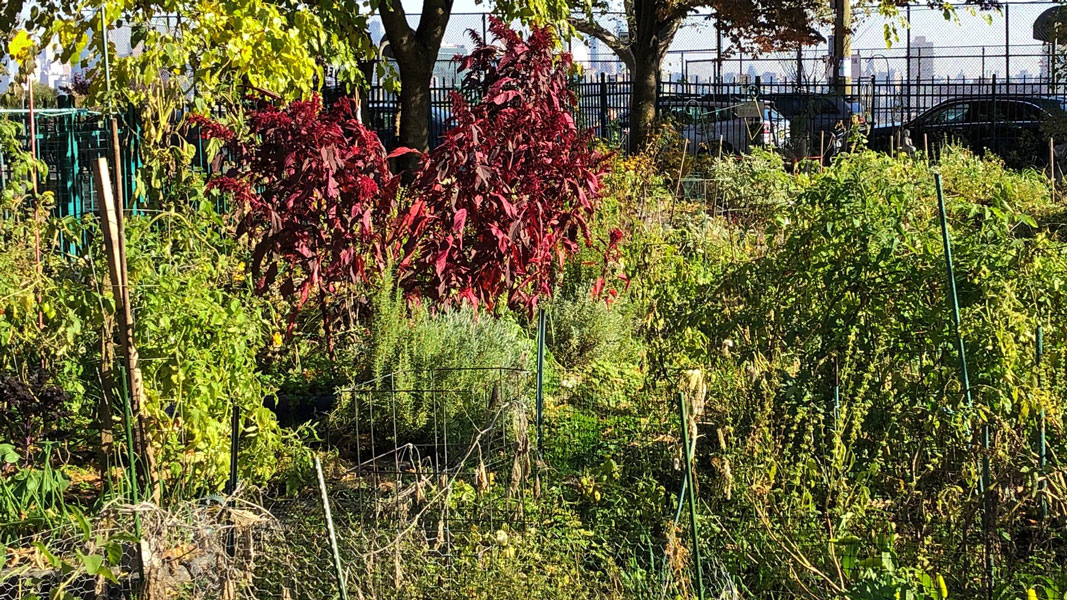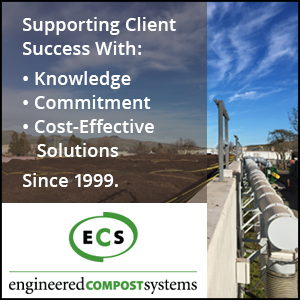Top: Urban community garden overlooking the New York City skyline. Photo by Nora Goldstein
A paper published in November 2023 in Environmental Health Perspectives maintains that compost produced from urban food and yard waste may contain contaminants such as pesticides, lead dust and PFAS that are harmful to humans and the environment, compromising the benefits derived from compost use in urban agriculture. “Coordination of urban waste stewardship and food production can build food security while also mitigating and adapting to climate change, though current waste and food systems are often politically, financially, and logistically siloed,” writes lead author Samantha Hall, a Boston University PhD student in public health. The research team conducted case studies on waste-to-compost activities and legislation in Boston, Seattle, San Francisco, and New York City. Interviews with community gardeners and growers examined how the cities sourced, collected, processed, tested, and delivered urban organic waste as compost for urban agriculture. Inequities observed are partially borne from redlining and other historically marginalizing practices that led to loss of land and food inequality among communities of color, the authors write, arguing that “justice-oriented policy planning efforts must incorporate proper waste disposal.” To address the inequities, they recommend that cities should embrace multilingual and multimedia communication and education about composting to community farmers and growers, and encourage policymakers to engage with volunteer garden coordinators and community organizers who can advocate for gardeners’ needs.














